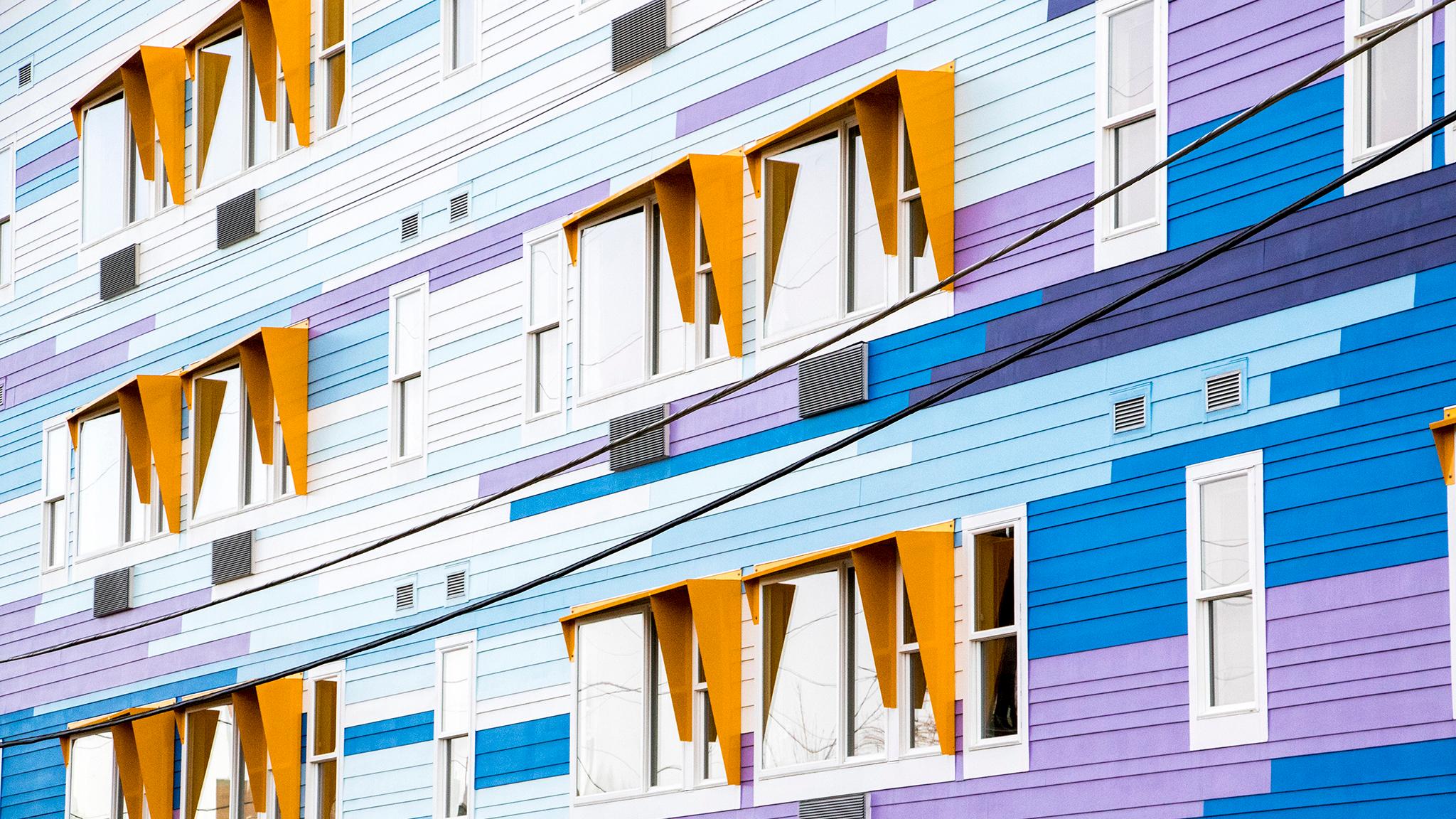The mailboxes have already been installed in the lobby, whose front desk lacks only a wheelie chair. Painters are brushing on the last of the yellow trim to complete a multicolored facade that makes entering the new Delores Project shelter and supportive housing complex in West Denver feel like being enveloped in a bright, warm serape.
No pressure. But the paint needs to be dry and the receptionist's chair and other furniture need to be in place by 9 a.m. Jan. 30, when Delores staff will start accepting applications from people earning less than 30 percent of the area median income who have experienced chronic homelessness and want to live in one of the 35 furnished one-bedroom apartments. The following week is the expected move-in date for the shelter on the same plot for guests who have been in quarters provided by Volunteers of America since construction began in 2016.
This week a hard-hatted Delores Project interim executive director Laura Rossbert, who's also an ordained minister, was bubbly as she led tours of the $30 million complex known as Arroyo Village.
"We're all pretty proud of how it's turned out," she said.
She pointed out details like locking lockers that will replace the plastic bins shelter guests now use to store personal items.
"It took us six months to find locks that were quiet," said Rossbert, noting many of the 50 or so people for whom her shelter has beds are working and want to be able to slip in without disturbing other guests when late shifts end.
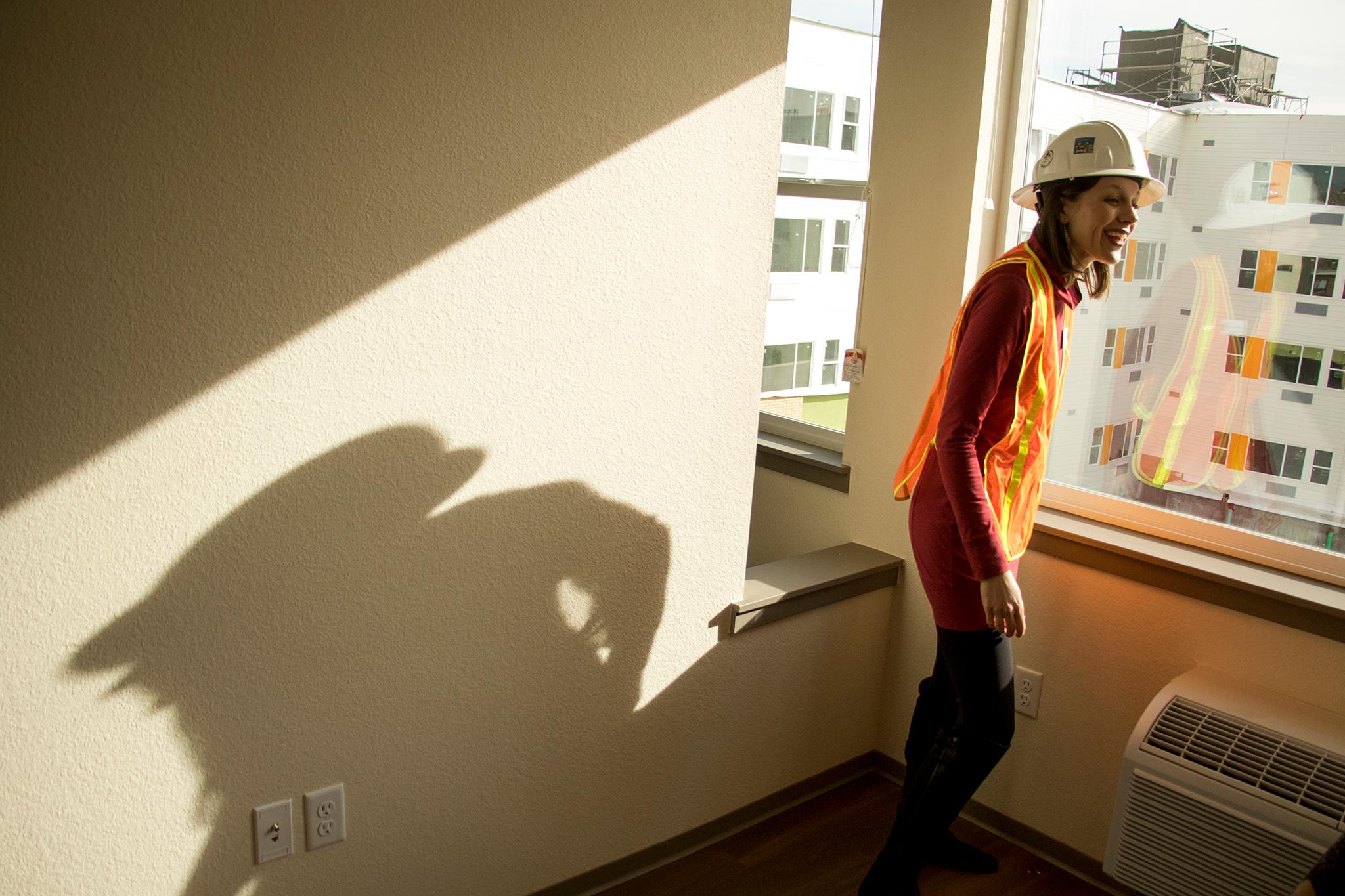
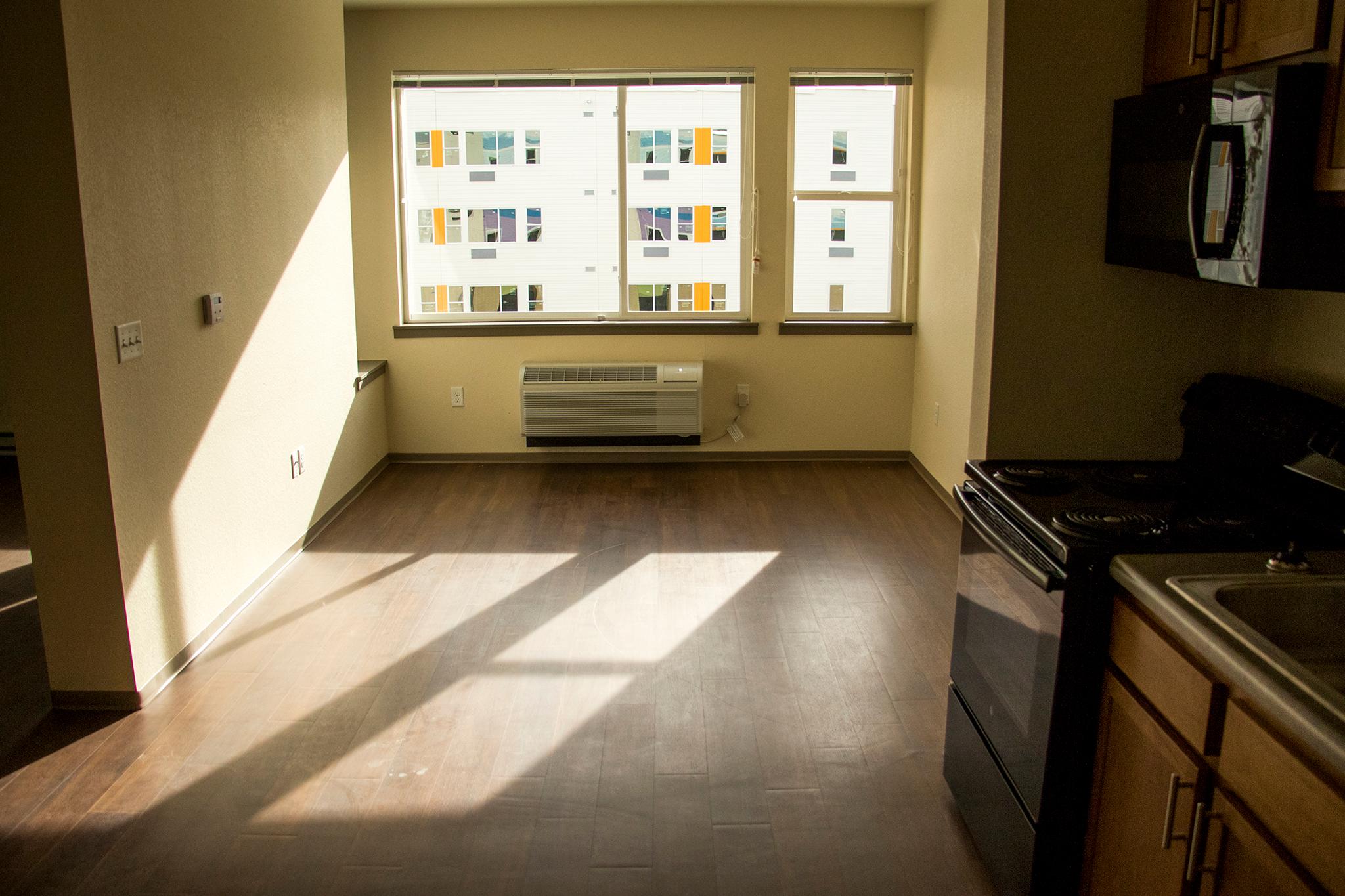
Rossbert is overseeing the final steps of a carefully considered project begun by Terrell Curtis, who stepped down late last year after 10 years as executive director of the Delores Project.
The shelter named for Delores Big Boy, who suffered health and substance abuse problems and physical and sexual violence before dying on the streets of Denver in in 1999, was open only in the winter when it started at the turn of this century. Delores had relied on borrowed spaces before being able to buy its own building, which once belonged to the city, in 2006 and start offering year-round services. Now in addition to opening the first purpose-built shelter to rise in Denver for decades, Delores is moving into the supportive housing business in a city facing a growing housing crisis. The number of working poor who have found shelter at Delores is a reminder of the wide gap between stagnant incomes and rising housing prices, and how quickly that gap has worsened in recent years.
Delores is for women and people who are transgender. It's small enough for residents to participate in some of the decisions about how it is run. Staff don't insist that the vulnerable people they serve follow too many rules in order to get help.
"That's now who we are, too," Rossbert said, reflecting that the growth embodied by Arroyo Village hasn't changed Delores's philosophy.
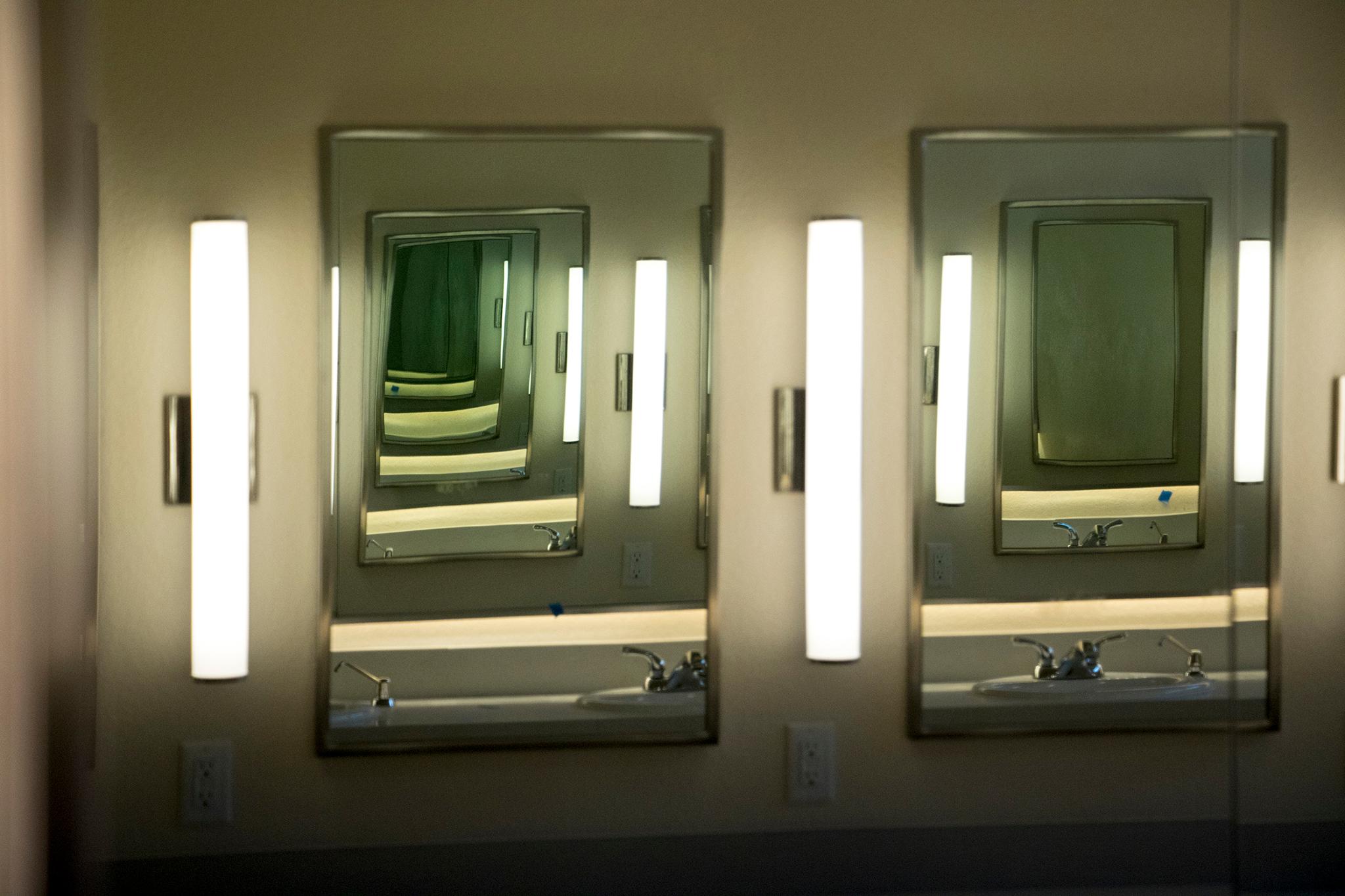
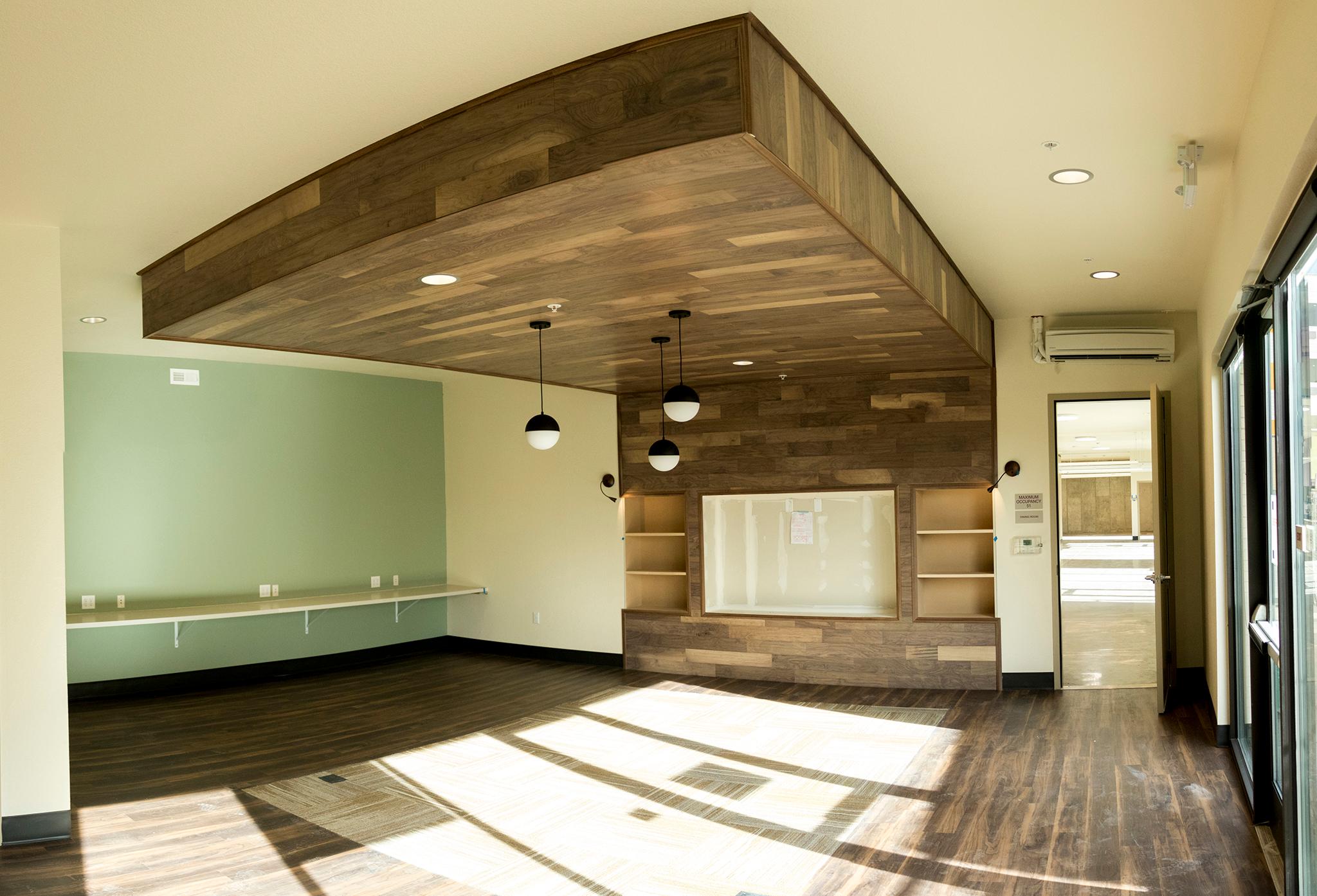
The project located steps from RTD's Knox rail station was realized through Curtis's collaboration with Dick Taft, president and CEO of the affordable housing developer Rocky Mountain Communities. Rocky Mountain Communities owned an aging income-restricted complex across the alley from the old Delores Project shelter, now razed, at the site of what is now Arroyo Village. Taft, who wanted to tear down his apartments and build new ones, proposed joining the plots to make better use of them. Curtis, her board and her staff had been looking for a way to leverage their property to better support their clients.
In addition to the shelter and the Delores apartments, Arroyo Village includes apartments Taft will manage for people earning no more than 50 percent of the area median income.
The new Delores shelter won't have more beds, but each of the beds will have personal lighting and a place to plug in a phone or a laptop. The new shelter also will have more spaces for classes, a library and other activities; laundry facilities; and a commercial kitchen.
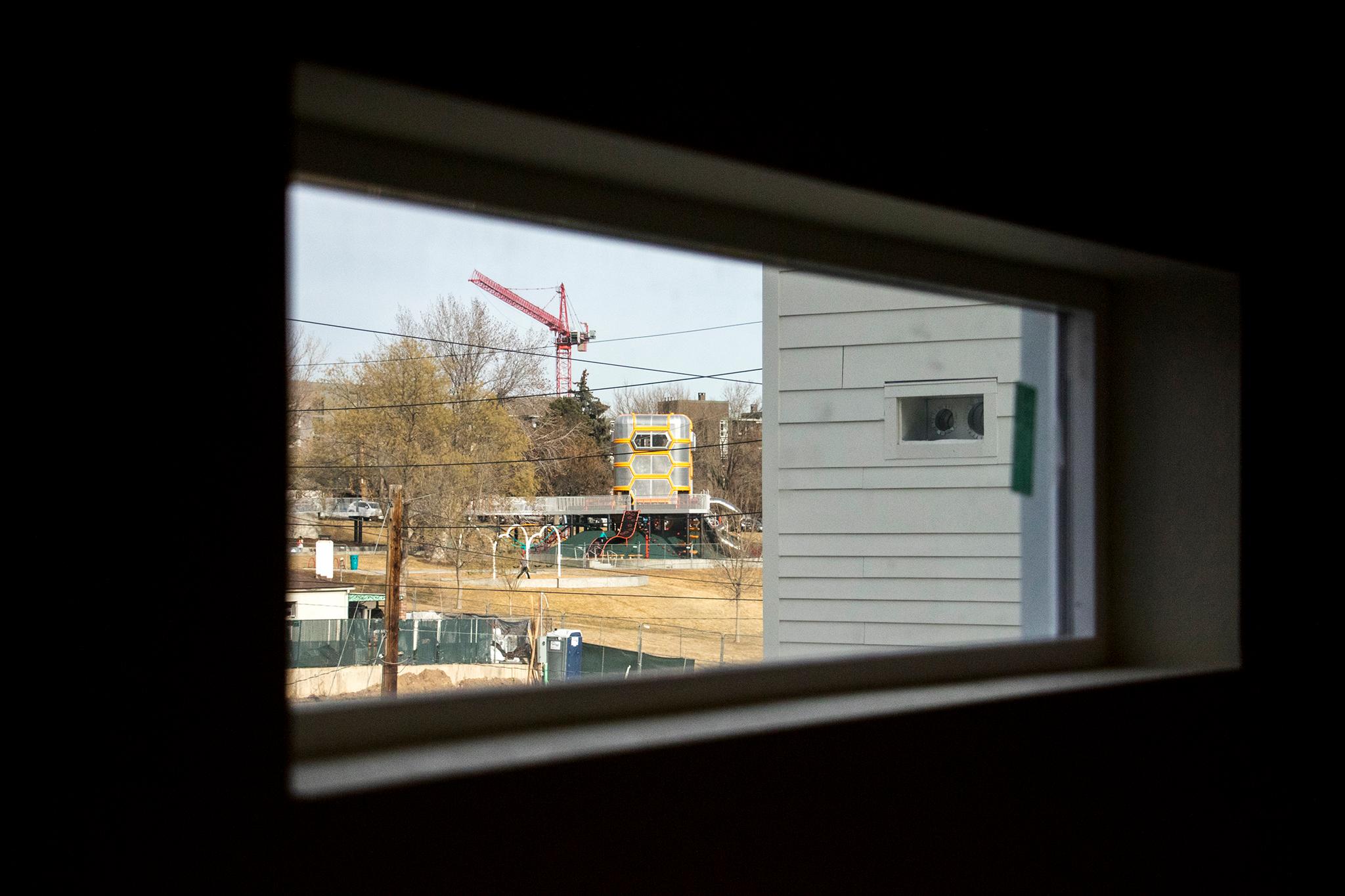
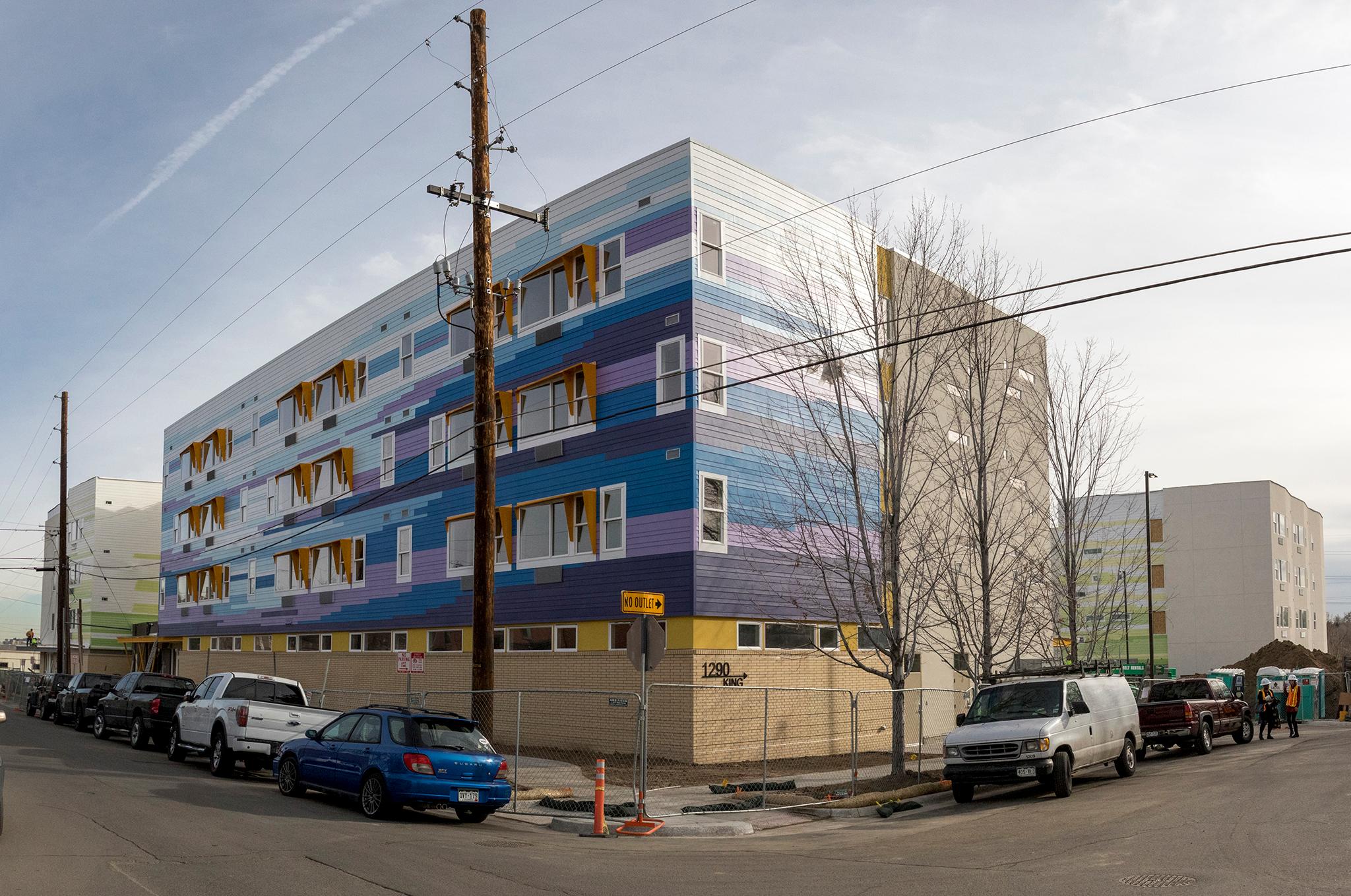
Shelter residents will also be able to take advantage of some of the therapy, life and job skills classes and other support offered to Delores apartment residents. Rossbert can imagine a woman in the shelter being inspired by studying alongside one in supportive housing and on the way to independent living.
"Wow. I shared a bunk with you and now you have your own apartment," the shelter resident might think, Rossbert said.
"Our folks are out there surviving," Rossbert said. "Once they get in here, they can thrive."

